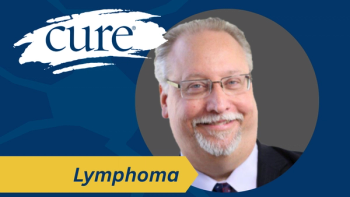
- Fall 2012
- Volume 11
- Issue 3
Less May Be More in Some Pediatric Lymphomas
When it comes to treating childhood Hodgkin lymphoma patients, less radiation might be better
A recent study found that children with favorable-risk Hodgkin lymphoma who received a regimen of chemotherapy and no or low doses of radiation fared just as well as the current standard of therapy, which involves a more intense chemotherapy along with higher doses of radiation.Radiation has long been used for treating Hodgkin lymphoma, which has a 90 to 95 percent cure rate, but radiation can lead to serious late effects, including secondary cancers. Current research shows this to be a valid concern among long-term survivors. A recent study found that 30 percent of women who had been treated with chest radiation for Hodgkin lymphoma as children developed breast cancer by age 50.
The multi-center trial, led by researchers at St. Jude Children's Research Hospital, involved 88 patients whose cancer had spread to fewer than three lymph nodes and surrounding tissue. All were treated with four rounds of a chemotherapy regimen known as VAMP (vinblastine, Adriamycin (doxorubicin), methotrexate, prednisone). Of the 88 children, 47 had a complete response to the chemotherapy regimen after two cycles and received no radiation. The remaining 41 patients had less than a complete response after two cycles of chemotherapy and were given a low dose of radiation. Both groups achieved a two-year event-free survival of about 90 percent.
An estimated 850 to 900 children and adolescents younger than 20 years old are diagnosed with Hodgkin lymphoma every year, which makes up 6 percent of all childhood cancers. Experts hope more trials such as this will continue to help replace therapies that can cause serious long-term and late effects with regimens that maintain high cure rates.
Articles in this issue
over 13 years ago
Many Young Patients Still Not Receiving Fertility Informationover 13 years ago
To Sleep Perchance to Remain Healthyover 13 years ago
Book Excerpt: The Cost of Hopeover 13 years ago
Study Links Sun Exposure and Pancreatic Cancer Riskover 13 years ago
Common Drugs Can Hinder Targeted Chemotherapy Agentsover 13 years ago
The Waiting Roomover 13 years ago
Cancer Survivor Wins Gold at Olympic Gamesover 13 years ago
Telling Kids About Cancerover 13 years ago
Lives Interrupted



